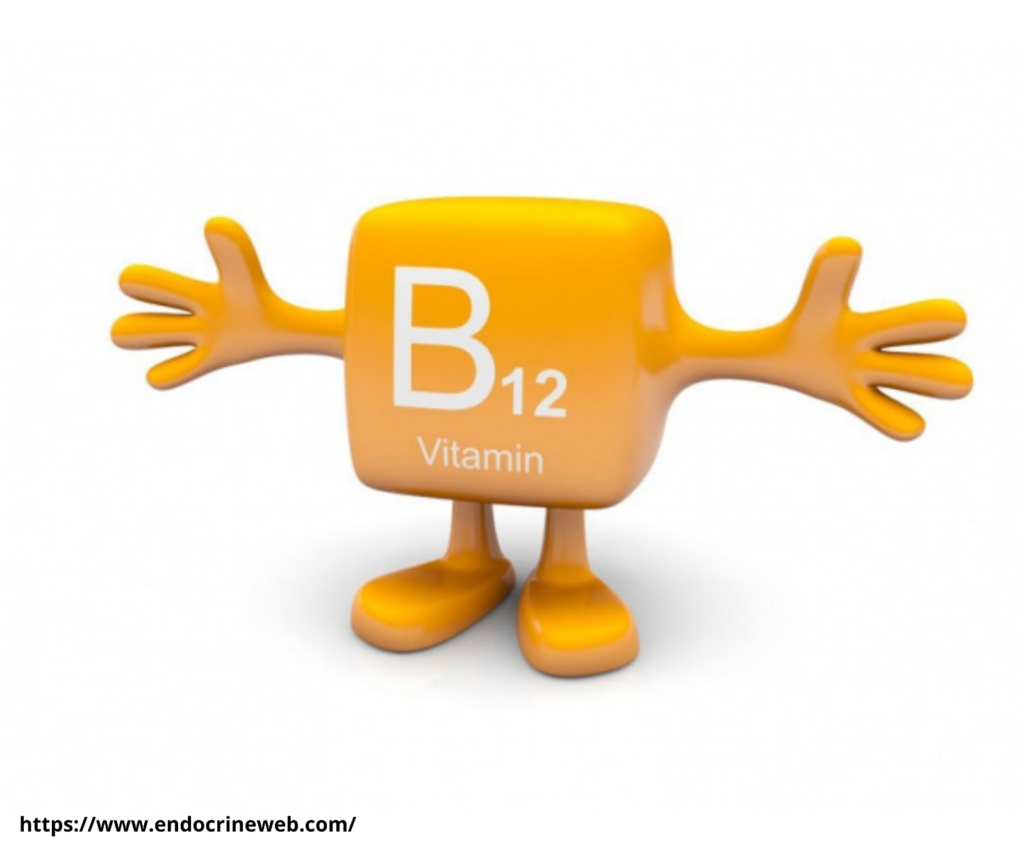- Are you suffering from diabetes?
- Are you a vegetarian?
If yes, then pay attention. Like many other people, you are undoubtedly deficient in vitamin B12, which is one of the essential vitamins obtained by the human body from non-vegetarian sources and plays a crucial role in maintaining healthy blood cells, energy production, and nerve function.
According to recent reports, people with diabetes frequently experience low B12 levels. The good news is that raising awareness and taking vitamin supplements are safe ways to avoid deficiency-related complications.
It helps people with diabetes particularly. So, you should avail a consultation from the best diabetologist in Ghaziabad for proper awareness.
B vitamin helps the body’s chemical reactions necessary for maintaining healthy nerve cells, proper brain function, DNA synthesis, and amino (protein) and fatty acid (cholesterol) metabolism. Anaemia and infections may be more common in older people who don’t get enough vitamin B12.
B12 aids in red blood cell development and iron function in the body (vitamin B9). It regulates homocysteine levels in the blood with vitamins B9, B6, and other nutrients (a common amino acid in your blood, high levels of which are linked to the early development of heart disease, often associated with low B12 levels). B12 is more than just a vitamin.
Now let us see the symptoms of vitamin B deficiency:
The symptoms of Vitamin B deficiency are as follows-
- Difficulty in concentrating
- Confusion or impaired thought
- Exhaustion or fatigue
- Rapid heartbeat
- Shortness of breath
- Weakness
- Light headedness and dizziness
- Yellowish skin
- Swollen and red tongue
- Mouth ulcers
- Agitation
- Irritability and a change in mood
Along with these, you may experience severe depression and insomnia. It will cause changes in how you think, feel, and act and a loss in mental abilities, memory, comprehension, and judgment.
Studies show that vitamin B12 deficiency is prevalent among people with diabetes: A 2016 Maharashtra study found that 81 percent of people in the urban middle-class survey had a low vitamin B12. Another research from 2019 found vitamin B12 deficiency in 47% of diabetics in a north Indian population.
B12 and Diabetes
Vitamin B12 deficiency can cause many complications, including anemia, neuropathy, irregular lipid profiles, and an increased heart disease risk. Alzheimer’s disease is now related to long-term depletion.
Low B12 levels are related to high homocysteine levels, which raise the risk of heart disease and stroke. Vitamin B12 deficiency leads to higher triglyceride levels and lowering the “good” cholesterol (HDL). Both of these are early signs of heart disease.
Around 30% of people with diabetes have neuropathy, nerve damage, and paralysis that causes numbness, tingling, muscle weakness, and pain, most often in the hands and feet. Vitamin B12 can help with neurologic complications, which are often misdiagnosed as hyperglycemia.
Diabetes raises the risk of fractures by interfering with bone development and slowing the healing of fractures. Increased homocysteine levels can lead to bone thinning, putting you at risk for osteoporosis.
Vitamin B12 plays an essential role in the development of bone cells. So, lack of Vitamin B12 can cause low bone mineral density. Eventually, it can lead to balance problems, repeated falls, and osteoporosis.
You are more likely to experience depression if you have diabetes, whether type 1 or type 2. A drop in vitamin B12 levels can lead to an increase in depression. Whereas a high level of vitamin B12 is beneficial for treating depression.
Take precautions
It is very important to detect the deficiency of vitamin B and to avail the proper care. If you have a vitamin B12 deficiency, getting a diagnosis and starting treatment is pretty easy.
However, if left untreated, the deficiency may lead to serious consequences. Vitamin B12 deficiency can take a long time to develop. But you can identify the complication by the symptoms and start proper treatment.
An experienced diabetologist in Ghaziabad can diagnose vitamin B12 deficiency while treating type 2 diabetes. If you are a strict vegetarian, it is a good idea to ask your doctor about your B12 levels.
The best way to get B12 is by diet. Most non-vegetarians get enough B12 from their diet, which is naturally present in animal products such as fish, meat, poultry, eggs, yogurt, and milk. The good news is that when taken in the proper form and dosages, vitamin B12 is one of the best vitamins to supplement.


